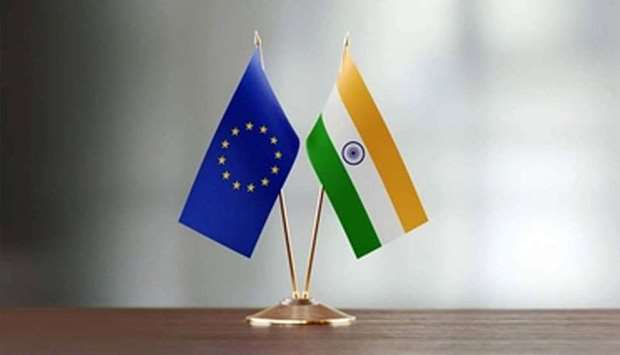The European Union and India will agree to relaunch stalled free-trade talks at a virtual summit on Saturday, according to a draft statement seen by Reuters, as concerns about China’s rise bring Brussels and New Delhi closer.
The draft statement, which must be signed off by EU ambassadors today and needs New Delhi’s final approval, would bind together two of the world’s biggest economies in an alliance seen as a counter to China.
If it is approved, the EU and India will say: “We agreed to resume negotiations for a balanced, ambitious, comprehensive and mutually beneficial trade agreement which would respond to the current challenges,” the draft statement said.
India’s Prime Minister Narendra Modi spoke to EU chief executive Ursula von der Leyen on Monday about reviving the trade talks, which have been stalled since 2013.
The pair will be joined by European Council president Charles Michel and German Chancellor Angela Merkel for the virtual meeting.
Michel will also talk to Modi before the Saturday summit.
A 2020 study by the European Parliament put the potential benefits of a trade deal with India for the EU at up to 8.5bn euros ($10bn), although that was before Britain left the bloc.
Britain will start negotiations on its own trade deal with India later this year, and Modi and British Prime Minister Boris Johnson held a virtual meeting yesterday.
India’s economic growth has overtaken China in recent years, making it an attractive market for Europe. The 27-nation bloc is India’s top export destination, taking about 15% of its foreign sales, according to EU data.
Although India has gradually lowered its tariffs since 1990, the EU still faces high levies exporting crops, food and motor vehicles, areas seen as obstacles to a deal.
Talks were put on hold in 2013 as both sides failed to bridge differences, such as over the extent of tariff reductions, patent protection, data security and the right of Indian professionals to work in Europe.
The draft statement also sets the stage for an agreement for the EU and India to build joint infrastructure projects around the world in the transport, energy and digital sectors.
The deal would follow a similar accord between the EU and Japan in 2019, seeking an alternative to Chinese largesse that raised suspicion in the West and Tokyo.
“Our partnership will promote a transparent, viable, inclusive, sustainable, comprehensive, and rules-based connectivity,” the draft summit statement said, in a veiled criticism of Chinese-financed projects that have sent debts in some central Asian and Balkan countries soaring.

Representative image (Reuters)
